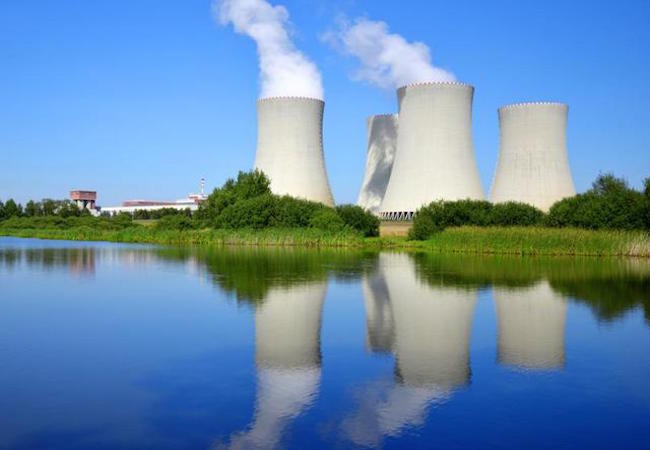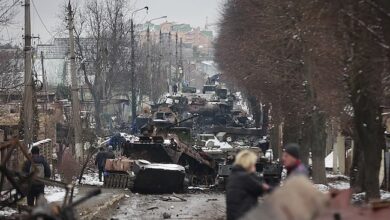
By Damien Dean
Amongst the energy production methods, nuclear power is by far the most contested one. One of the contention points is about a common misunderstanding. Which is democratic countries do not opt for nuclear energy. Yes, they do. However, there are slight differences between democratic and non-democratic governments in dealing with nuclear power. Before getting into our main discussion, let us take a quick look at the contested points.
Debates over the Energy Security of Nuclear Power
When politicians think of the utility of an energy source, they consider three basic energy security concepts: availability, reliability, and affordability.[1] While availability refers to the quantity available of an energy source, reliability is the level of trust for suppliers. Affordability is the optimum cost of an energy resource (too low or high energy prices destabilize national as well as global economy).
Nuclear power offers ample amounts of electricity, and is not available only intermittently like some renewables. The steady supply of energy is very useful, but if the reactors have to be shut down, they leave a very a big power gap to fill.
Having a nuclear power plant usually means untroubled flow of energy. Nuclear power plants enable countries bypass geo-political disturbances; therefore, nuclear energy is immune to the volatility stemming from political instability of clients and suppliers. But countries that don’t have the required know-how to build their own plants are heavily reliant on the expertise of the others. Likewise, countries depend on the expertise of other countries for the procurement of the enriched nuclear row material.
In terms of affordability, nuclear energy is one of the most efficient energy sources with the second least cost of producing electricity per KWh after hydropower. A single uranium pellet, slightly larger than a pencil eraser, contains the same energy as a ton of coal, three barrels of oil or 17,000 cubic feet of natural gas. Though erecting a nuclear power plant and its maintenance is costly— almost $1 million a day due to various problems including legal challenges—the cost is amortized in time by producing electricity with less price.
Debates over Environmental Effects of Nuclear Energy
According to the World Nuclear Association, for every 22 tons of uranium used, one million tons of CO2 emissions is averted. Similarly, International Atomic Energy Agency’s (IAEA) findings suggest that nuclear energy along wind energy are the two least carbon emitter. Also, another study has found that nuclear power plants in 2014 prevented 595 million metric tons of carbon dioxide emission, equivalent to carbon emission of approximately 135 million cars.
That sounds promising. But there is also the other side of the coin. Radiation is as strong polluter as carbon. In addition, due to the very nature of radioactivity, the entire process for nuclear energy is toxic. Indeed, the production of 1,000 tons of uranium fuel generates approximately 100,000 tons of radioactive tailings and nearly one million gallons of liquid waste containing heavy metals and arsenic. Also, using fossil fuels for refining uranium ore and construction of power plants— the construction of such power plants needs very large amount of concrete and metal— makes the electricity production using nuclear energy dirty. Then there are potential nuclear meltdowns and leaks—remember the Three Mile Island, Chernobyl and Fukushima incidents.
Democracy matters, only slightly
Given all these risks and benefits of nuclear energy, there is no straight correlation between the level of democracy and the exploitation of nuclear energy. There are currently 30 countries that have nuclear power plants. In terms of the number of operating nuclear power plants, United States with 99 plants is followed by France, Japan, China, Russia, and South Korea.
The level of democracy seems to be insignificant in deciding to go for nuclear energy. Out of top 20 counties in the Democracy Ranking Index, 13 of them have nuclear power plants. There may be two important factors explaining this phenomenon. The share of domestic electricity production produced by nuclear energy might impact the tone of the civil society. Indeed, out of these 13 countries, the share of nuclear energy to their electricity production is not less than 15 %, which is a considerable amount. Therefore, the larger share of nuclear energy in domestic electricity production might correspond to a more appeased civil society against nuclear power plants.
Another factor that affects the public opinion might be trust level in public and governmental institutions. Because people in countries that perform well in the democracy index with nuclear power plants have higher level of trust for their countries’ institutions, safety for nuclear power plants might be less of a concern for people in such countries.
On the other hand, however, countries that will have their first nuclear power plants in near future have strikingly low marks in the democracy index as well as weak civil societies. Belarus, Egypt, Saudi Arabia, and the United Arab Emirates are the countries in which building a nuclear power plant is currently under construction. In these countries, the civil society cushion seems to be weakened or totally bypassed.
Based on the number of additional nuclear power plants intended to be built, the level of democracy seems to play a bigger role. When the level of democracy increases, the number of intended nuclear power plant construction decreases. For example, While China intends to add 20, Russia 9, India 6, the U.S. 5 more power plants to their portfolio; Argentina, Brazil, Finland, and France plan to build only 1 more. And the latter batch performs better in the democracy index than the former with the exception of the United States.
Due to the complexity of the benefits and drawbacks of nuclear energy, the debate over nuclear will not come to an end soon. As Ferguson Charles, a nuclear energy policy expert, claims, the nuclear age is not over even after the catastrophic consequences of the Fukushima incident. Therefore, civil society and democracy should be empowered so that they can function as a bulwark against the rapid proliferation of nuclear power plants while being a driving force that ensures governments to take necessary precautionary measures to minimize the potential damages of nuclear energy.
Notes:
- Ferguson, Charles D., “Nuclear Energy : What Everyone Needs to Know?” New York, New York : Oxford University Press. 2011 p. 53



